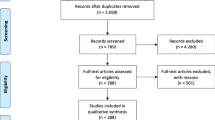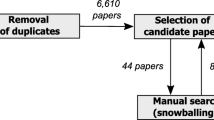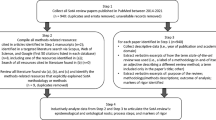Abstract
Problem
Public health professionals rely heavily on resources that are often only available in grey literature format. However, while grey literature may contain comprehensive, concrete, and up-to-date information, the fugitive nature of this material makes access problematic. The public health community needs a knowledge management repository of grey literature and tools for easy and rapid access, so time spent searching across and through materials can be reduced.
Goal
Design a customizable prototype public health knowledge management repository system and end-user interface with optimal interoperability and the capability to provide timely access to public health information in support of decision making at the point and time of need. Specification of an appropriate metadata schema, which identifies in a standardized way the elements needed to describe a resource, are a critical part of the system. The long-term goal is a system that delivers answers to public health questions, not a list of pointers to resources that may or may not contain information to answer those questions.
Evaluation Procedure
We are utilizing user needs analysis, user profiling, and resource assessment to inform understanding the information needs of public health professionals in the context of their everyday workflow and enable identification of key grey literature knowledge resources for incorporation into the knowledge management system. Rapid prototyping is being used to translate these findings into system specifications and interface design of a small-scale prototype system. The prototype defines system components and interactivity both among components and with relevant external knowledge resources––for example, the New York Academy of Medicine’s Grey Literature collection, web resources from the Centers for Disease Control and Prevention, Department of Health materials, etc. The collection of materials will be organized utilizing resource metadata (high level formal, standards-based descriptions of documents) to improve location of relevant grey literature and other information sources.
Results
Testing and evaluation will result in enhancements to the user interface, information resources, presentation of those resources, etc. We also anticipate that the metadata schema employed in a public health knowledge management system will improve the efficacy and efficiency of locating answers to public health questions from the grey literature.
Conclusions
As the amount and breadth of public health information resources continue to expand it is critical that we find ways to provide direct access to the contents of these rich and complex resources. We believe that a public health grey literature knowledge management system with a collection of resources driven by the information needs of public health practitioners and organized using an appropriate metadata scheme will reduce time spent searching across and through materials, enhance public health decision making and ultimately improve the overall quality of public health services.

Similar content being viewed by others
References
Revere D, Turner A, Madhavan A, Rambo N, Bugni PF, Kimball AM, Fuller SS. Understanding the information needs of public health practitioners: a literature review to inform design of an interactive digital knowledge management system. J Biomed Inform, Special Issue on Public Health Informatics 2007; in press.
Ash JS, Berg M, Coiera E. Some unintended consequences of information technology in health care: the nature of patient care information system-related errors. J Am Med Inform Assoc 2004;11(2):104–12.
Kirah A, Fuson C, Grudin J, Feldman E. Ethnography for software development. In: Bias R, Mayhew D, editors. Cost justifying usablity: an update for the internet age. 2nd ed. Elsevier; 2005. p. 415–45.
Markus ML. Technochange management: using IT to drive organizational change. J Inform Tech 2004;19(1):4–20.
Dublin Core Metadata Element Set. Dublin Core Metadata Initiative. <http://www.dublincore.org/documents/dces/>.
National Public Health Language Thesaurus. National Health Service, UK. <http://www.nphl.nhs.uk/>.
Unified Medical Language System. National Library of Medicine. <http://www.nlm.nih.gov/research/umls/umlsmain.html>.
Public Health Information Network Messaging System (PHINMS). CDC. <http://www.cdc.gov/phin/software-solutions/phinms/index.html>.
Acknowledgements
Many people contributed to the work that is reported in this paper. We wish to acknowledge the contributions of the myPublicHealth Project team, including Yuki Durham, AnnMarie Kimball, John Kobayashi, Ann Madhavan, Neil Rambo, and Anne Turner. Funding for myPublicHealth is provided by the Centers for Disease Control and Prevention Award Number 1 P01 CD000261-01 which supports the Center for Public Health Informatics in the School of Public Health, University of Washington, Seattle, WA, USA. Additional support was provided by the UW Health Sciences Libraries.
Author information
Authors and Affiliations
Corresponding author
Rights and permissions
About this article
Cite this article
Revere, D., Bugni, P.F. & Fuller, S. A Public Health Knowledge Management Repository that Includes Grey Literature. Pub Res Q 23, 65–70 (2007). https://doi.org/10.1007/s12109-007-9002-6
Published:
Issue Date:
DOI: https://doi.org/10.1007/s12109-007-9002-6




